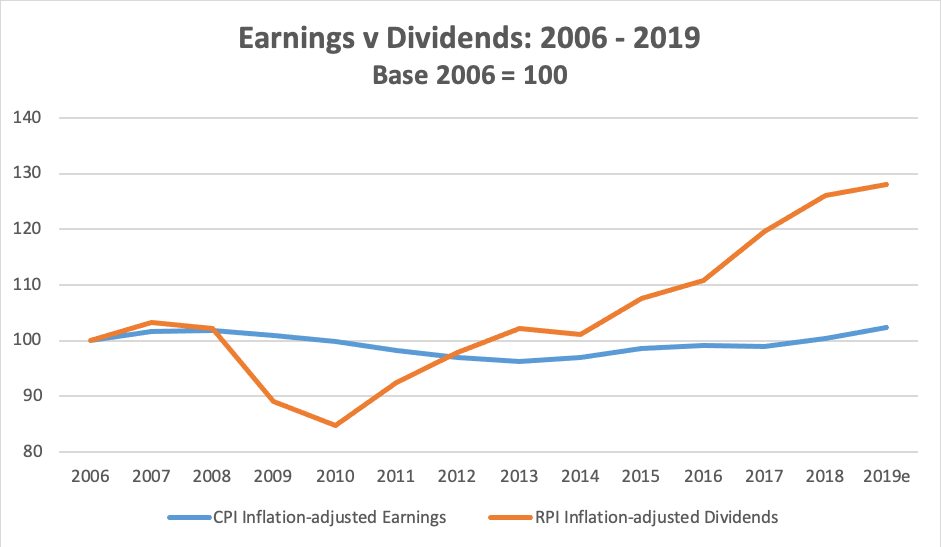How much has your income increased over the last year? The latest data from…

China comes of age
In June, an important decision was made about the future role of Chinese investment markets.
The elephant in the room
China is the final letter in the BRICs (Brazil, Russia, India and China) quartet of emerging markets made famous by Jim O’Neill, the former chief economist at Goldman Sachs. His forecast of growth for China, originally made in a paper published in 2001, proved prescient. At the time, the Chinese economy was little bigger than Italy’s. Today, China ranks as the world’s first or second largest economy in terms of economic output (it depends on your chosen yardstick), boasts the second biggest global equity market and has the third largest bond market.
For all the country’s heft, Chinese shares listed on China’s two stock exchanges, in Shenzhen and Shanghai, are not included in the most widely used emerging markets index, the MSCI Emerging Markets Index. MSCI does have Chinese companies in that index, but they are listed in the USA or Hong Kong, not China. These offshore listings already represent just over a quarter of the Index.
Review time
MSCI reviews the membership of its indices regularly and in 2014, 2015 and 2016 it rejected the inclusion of Chinese listed shares. The reasons revolved around corporate governance, market liquidity and heavy-handed intervention by the Chinese authorities. After each rejection China made some tweaks and hoped for better luck next time.
In 2017, better luck arrived and, at strike four, MSCI announced that 222 of the largest Chinese companies listed on the mainland exchanges would join the Emerging Markets Index from next May. They will not be given a full weighting, so will initially count for less than 1% of the Index. In part, this was to prevent too much market disruption, as an estimated $1,000 billion tracks the Index. MSCI’s approach was also seen as giving the index provider leverage to encourage further market reforms in China, to be rewarded with increased weightings. A full weighting for Chinese shares, listed offshore and in China, would account for about 40% of the Index. At that point, the Index becomes more like a China and Other Emerging Markets index.
ACTION
MSCI’s long-awaited decision to include mainland China shares in its Emerging Markets Index is another example of the growing importance of Asian markets from the global standpoint.
The past year has been a lesson for UK investors in the benefits of having international diversification. If, like many private investors, you have little or no exposure to China, do talk to us about the opportunities that already exist to invest in the still fast-growing country.
Past performance is not a reliable guide to the future. The value of investments and the income from them can go down as well as up. The value of tax reliefs depend upon individual circumstances and tax rules may change. The FCA does not regulate tax advice.
This blog is provided strictly for general consideration only and is based on our understanding of law and HM Revenue & Customs practice as at July 2017 and the contents of the 2017 Budget.
No action must be taken or refrained from based on its contents alone. Accordingly, no responsibility can be assumed for any loss occasioned in connection with the content hereof and any such action or inaction.
Professional advice is necessary for every case.
August 2017


